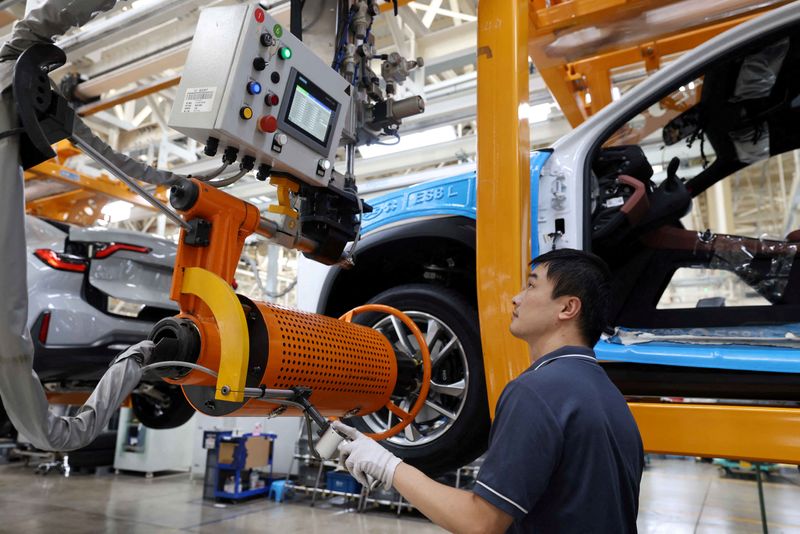BEIJING (Reuters) - China's factory activity likely contracted for a fifth straight month in August, a Reuters poll showed on Tuesday, as weak demand threatens recovery prospects in the world's second-largest economy and pressures officials to prop up growth.
The official purchasing managers' index (PMI) is expected to have edged up to 49.4 in August, a marginal improvement on the 49.3 recorded in July, according to the median forecast of 34 economists in the poll.
An index reading above 50 indicates expansion in activity on a monthly basis while below that signals contraction. Only two respondents forecast readings of 50 or above.
The last time the indicator pointed to contraction for more than three consecutive months was in the six months to October 2019, before the pandemic, suggesting negative sentiment among factory managers has become entrenched.
"Demand from key trading partners is diminishing. Both the U.S. and Eurozone Manufacturing PMIs have fallen below the expansion threshold of 50 for nine and 14 consecutive months, respectively," Taimur Baig, chief economist at DBS, wrote in a note. "ASEAN, China's top trading partner, has also decreased to a nearly two-year low of 50.8."
Major banks have downgraded their economic growth forecasts for the year to below the government's target of about 5% as recovery sputters on a worsening property slump, weak consumer spending and tumbling credit growth, prompting authorities to slash interest and promise further support.
Over the weekend, China announced a halving in stock-trading stamp duties and on Friday approved guidelines for affordable housing to expand investment, although analysts anticipate home prices will show no growth this year.
Most analysts say policymakers are unlikely to deliver any aggressive stimulus amid worries about exacerbating debt risks.

The official manufacturing PMI, which largely focuses on big and state-owned firms, and its survey for the services sector, will be released on Thursday.
Last month, the services and construction sectors teetered on the brink of contraction - the last remaining bright spots in an economy otherwise struggling for signs of life.